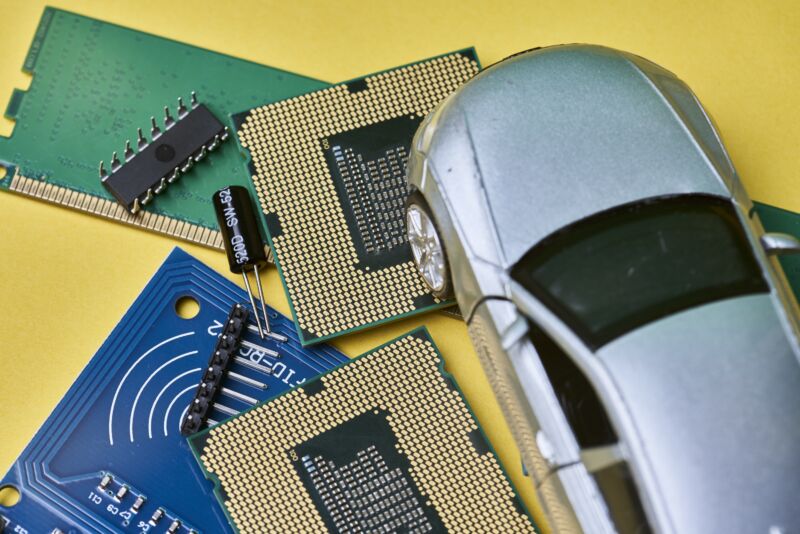Automotive chip shortages to continue throughout 2023, industry says

golibtolibov/getty photos
We can expect continued disruption to the world-wide semiconductor field and, for that reason, ongoing source chain shortages in the automotive industry throughout 2023, according to a new report in the Money Occasions. The head of Onsemi, Hassane El-Khoury, informed the paper that “there’s practically nothing you can do now to modify 2023” and that “we will be including capability each and every quarter, each thirty day period in 2023 to fulfill our shopper demand from customers.”
The problem started through the pandemic and its linked shutdowns about the planet. These triggered automakers to temporarily idle vegetation thanks to community wellbeing worries, leading some to cancel just-in-time orders for silicon chips. But as vaccines turned offered and creation restarted, the silicon fabs that would have produced chips for automakers experienced previously switched that production capacity to other shoppers like Web of Issues unit makers.
Chip plants are jogging flat-out to meet demand from customers but have warned that the problem will not be solved rapidly.
Therefore, automakers have experienced to cut down production or even idle sure traces. And in some cases, auto organizations have transported motor vehicles minus specific attributes due to remaining unable to resource the semiconductors important. For case in point, Standard Motors has had to revise its strategy to establish 400,000 electrical motor vehicles by the finish of 2023—now it hopes to meet up with that goal about six months late.
And the analysts at AutoForecast Solutions anticipate that the chip shortage will end result in all around 3 million less autos currently being constructed in 2023 for context, in 2022, automakers confronted a manufacturing shortfall of 4.5 million cars because of to shortages, down from 10.5 million misplaced vehicles in 2021.
Chipmakers like Onsemi are growing ability and constructing new fabs and foundries, but it is really a sluggish process. There is help from governments worldwide to do so—in August, US President Joe Biden signed the CHIPS and Science Act into law, authorizing up to $200 billion about the next 10 many years in grants to the sector, along with an extra sequence of tax breaks.
But that reduction will just take some time to present up in source chains, given lead instances ranging from 28 to 52 months or much more. The FT estimates Infineon CEO Jochen Hanebeck as saying: “I do assume very a longtime shortage.” Stellantis’ head, Carlos Tavares, also thinks the challenge will proceed all over 2023, and that’s terrible news for any individual who wants to get a new vehicle.
